Foundation for Rural & Regional Renewal (FRRR)
Grants available for first responder organisations in places impacted by Black Summer bushfires
Porepunkah was just one of many communities that was badly affected by the 2019/20 bushfires, but a recent grant is helping ensure that the local Country Fire Authority (CFA) brigade has the resources it needs to better prepare and serve the community when the next emergency occurs.
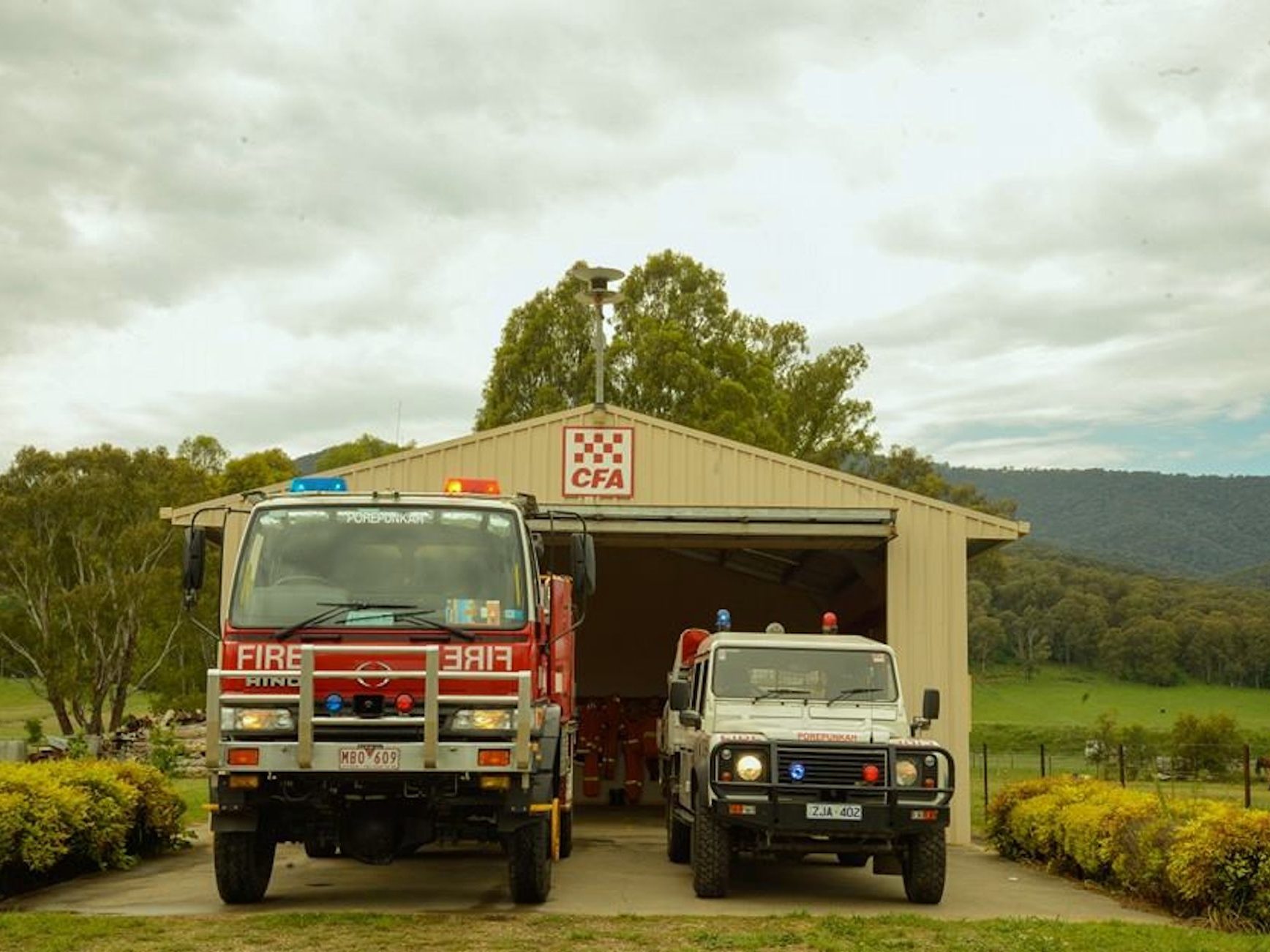
Porepunkah CFA was awarded a $10,875 grant through FRRR’s Volunteer Emergency Services Fund to support volunteer training and wellbeing through IT training technology and appliance upgrades for the kitchen at the Porepunkah CFA Shed. Porepunkah was one of 19 emergency services to share in $311,049 in grants, through the Volunteer Emergency Services Fund’s first round of funding.
Renee Lee, Porepunkah CFA’s Secretary said the funding will also help the group to facilitate community outreach during non-disaster times.
“While our volunteers take pride in our role and are committed to make Porepunkah a safer and better place for the community, we cannot express how much this grant means to us. As volunteers, it means recognition for our time and sacrifices.
“In addition, the grant approval came in a timely manner as it will uplift the spirit of community as we are faced with the numerous lockdowns,” Ms Lee said.
Made possible thanks to a significant private donation, the Volunteer Emergency Services Fund provides grants to local volunteer emergency services groups and first responder organisations in eligible fire-affected communities across the Australian Capital Territory, New South Wales, Queensland, South Australia, Tasmania and Victoria.
FRRR is encouraging local volunteer emergency services groups serving rural communities affected by the 2019/20 bushfires to apply now for the second round of grant funding to support their recovery needs and/or strengthen their emergency response capabilities ahead of the 2021/22 bushfire season.
Grants of up to $25,000 are available to meet local agencies needs, and we want to encourage groups who may not have a large project in mind to consider making a small grant application of up to $6,000 to be better prepared with small essential equipment, i.e. Go bags that might contain torches, fire blankets and traffic wands. At least $100,000 in funding will be provided to meet such essential requests.
Danielle Griffin, FRRR’s Philanthropic Services Manager – Corporate, said that with this summer’s bushfire season fast approaching, first responders should feel confident in their preparedness and volunteers should feel supported, especially those in regions that are still recovering from the 2019/20 bushfires.
“Preparing for future disasters and adapting to changing conditions after a disaster are integral parts of the recovery process. In practical terms, preparedness can mean upgrades to infrastructure and equipment and providing up-to-date training, which can have a big impact on the security and safety of first responders.
“These grants can fund important projects to care for the mental health and wellbeing of volunteers that generously give their time to support and protect their communities.
“The Volunteer Emergency Services Fund is specifically designed to support the disaster recovery needs and priorities of first responder organisations at a local level, and we look forward to funding initiatives that will assist these vital community members and services,” Ms Griffin said.
The Volunteer Emergency Services Fund grant program is now open. Applications close 5pm AEDT 20 October 2021, with grants to be announced November 2021.
For more information, visit FRRR’s website – https://frrr.org.au/volunteer-emergency-services-fund-grant-program/.
The town of Stanthorpe, in Queensland is no stranger to hardship. After years of drought and bushfires, the community was already feeling the pressure when COVID-19 hit. Like many rural, remote, and regional towns, social isolation is a huge issue, now more than ever with strict rules on social interactions and gatherings. These restrictions made it particularly difficult for visitors to come to the area and spend money at local businesses, putting more financial pressure on the community already feeling the effects of years of severe drought. It was so bad, the town was even trucking in water for residents.
The Granite Belt Art and Craft Train Inc (GBART) was determined to push through all these challenges. GBART’s purpose is to support community wellbeing and economic diversity through improving the Granite Belt’s cultural vibrancy and identity. The region stretches from the Great Dividing Range in Queensland all the way to the New England region of New South Wales.
Thanks to a $20,000 Tackling Tough Times Together (TTTT) grant, GBART was able to hold the highly anticipated annual culture and tourism event, Open Studio, which took place over three days and attracted approximately 4,000 visitors.
Open Studio involved hands on workshops, classes and demonstrations, while also engaging with Australian art and craft in active, inclusive ways. The events were hosted at 27 different venues, including wineries that saw visitors stopping to taste, shop and eat.
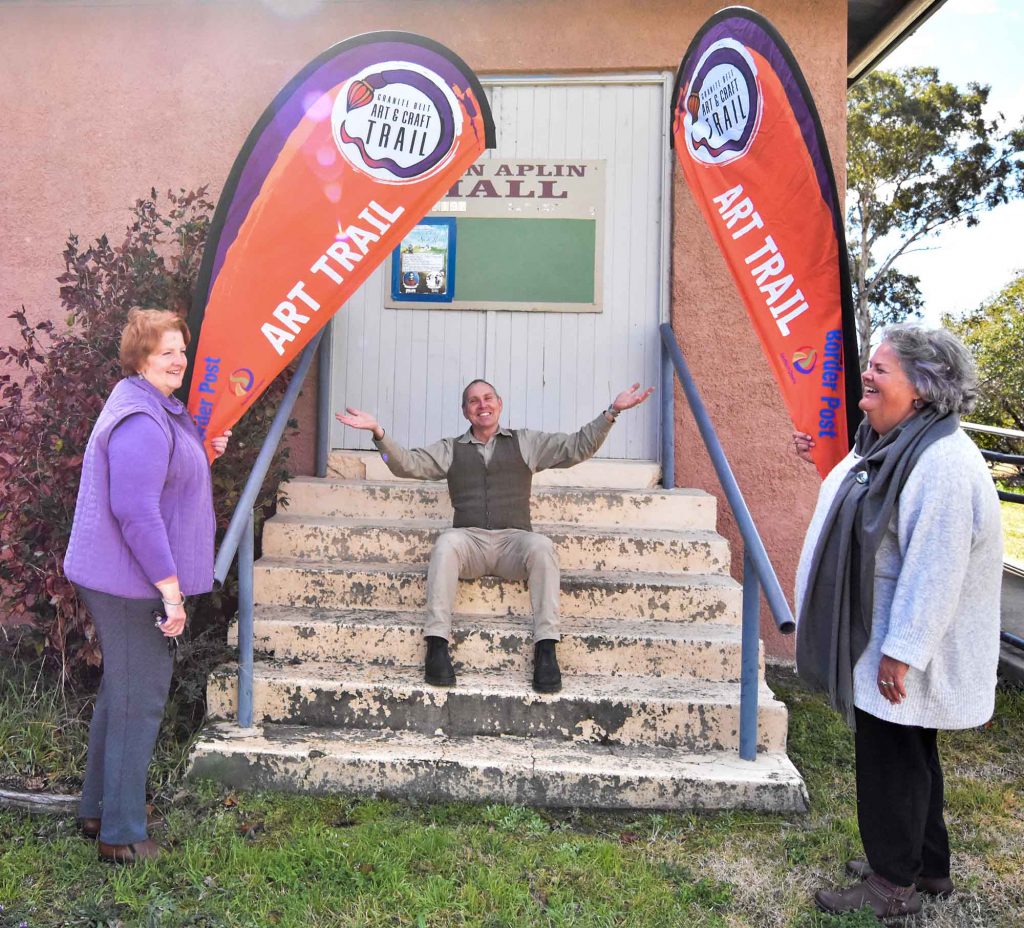
The TTTT grant allowed GBART to fund a range of supporting resources such as the training and up-skilling of volunteers, purchasing office and IT equipment, venue hire, advertising and marketing material, COVID-19 cleaning equipment and training, plus salaries for an event coordinator, administration support, and a media consultant.
The event was a major success, bringing the community together and engaging visitors from surrounding towns. Best of all, there were little to no changes needed to their original plan. Event organisers said they were “proud of the venues, the accommodation and hospitality businesses that supported the artisans and hosted them in their venues, and we are proud of the artisans who provided the engagement that brought everyone here.”
FRRR has awarded $311,049 in grants to volunteer emergency services organisations impacted by the 2019/20 bushfires for projects that will help them to respond to local disaster recovery needs and address preparedness priorities ahead of the 2021/22 bushfire season.
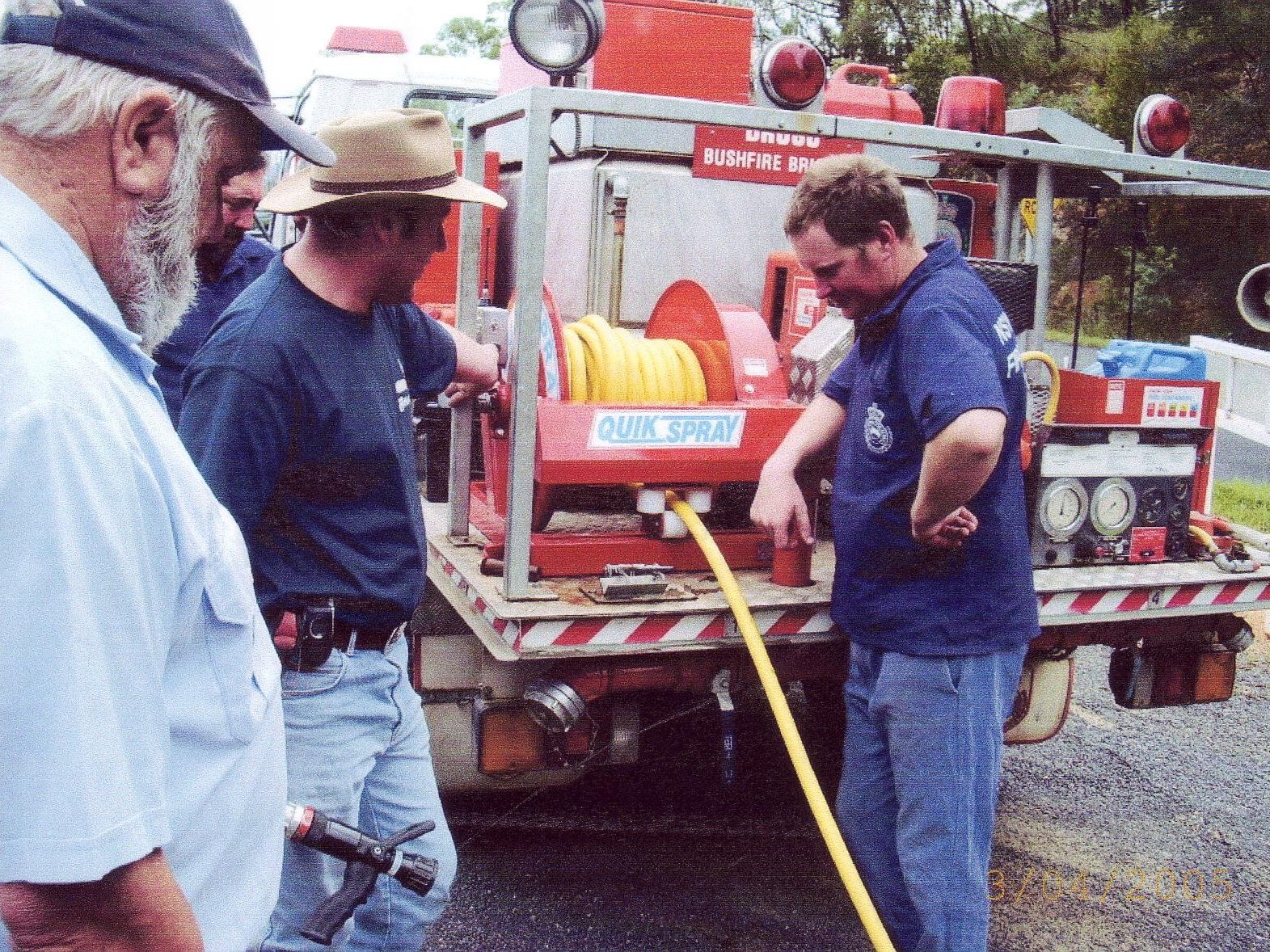
Funded through the Volunteer Emergency Services Grant Program, grants range from $4500 for Audio Visual Equipment, to $25,000 for the installation of a solar power battery backup system.
Made possible thanks to a generous private donation, funded initiatives will support fire-affected local volunteer emergency services and first-responder organisations in communities across New South Wales, Queensland, South Australia, and Victoria.
Natalie Egleton, FRRR’s CEO, said that she was pleased to see this targeted funding going to initiatives that will build and strengthen the capacity of these vital members of impacted communities.
“We saw strong demand for equipment and infrastructure improvements through this round of applications. Providing safe and secure facilities and equipment not only allows these services to better support their communities and respond to emergencies and future disasters, but they are also important to the recovery of the volunteers, building their resilience and caring for their mental health and wellbeing.
“The mental health and wellbeing of the volunteers will also be supported through funded training and education projects. These initiatives will increase the capacity of these volunteer-run emergency services, so that they are better equipped to care for their local community as they continue to recover from the bushfires,” Ms Egleton said.
Some of the projects awarded this round include:
- Tinonee Rural Fire Brigade, NSW – Disaster Response Go Bags for Support Vehicles – $6,713 – Improve the capacity and enhance the safety of volunteers through the provision of fire safety equipment for community evacuation notifications and emergencies.
- South Eastern Region QLD Rural Fire Service Division, QLD – Upgrade Emergency Services Response Command Vehicle – $25,000 – Boost operational capacity of the Beaudesert RFB Group through the upgrade of the Group Command vehicle.
- Country Fire Authority – St Arnaud CFA, VIC – Connecting Our Group – $5,000 – Support volunteer capability through the provision of a laptop computer for operations at the St Arnaud CFA.
- Onkaparinga CFS Group, SA – Onkaparinga CFS Group Tablet Grant – $19,628 – Enhance organisational capacity through the provision of information technology equipment at the Onkaparinga CFS.
- Surf Life Saving Lower North Coast Branch Incorporated, NSW– Provision of emergency response equipment for frontline lifesavers during bushfire emergencies – $25,000 – Improving preparedness and capability for Surf Life Saving volunteers in the Lower North Coast.
The next round of the Volunteer Emergency Services Fund Grant program will open 24 September 2021. For more information, visit – https://frrr.org.au/volunteer-emergency-services-fund-grant-program/.
The full list of grant recipients and their projects are below.
| Organisation | Project | Location | Grant | |||
|---|---|---|---|---|---|---|
| NEW SOUTH WALES | ||||||
| Emmaville Rural Fire Brigade | Lockers for Firefighters at Emmaville RFS Shed Enhance emergency response times through the provision of volunteer lockers at the Emmaville Rural Fire Brigade. | Emmaville | $6,200 | |||
| Far South Coast Branch Surf Life Saving Association of Australia Inc | Disaster Preparedness for Volunteer Lifesavers and the Community Increase organisational capacity through the provision of Bushfire Response Kits for South Coast Surf Life Saving clubs. | Bermagui | $23,411 | |||
| Merriwa and District Rescue Squad Inc | It's a Long Way to the Top, if You've Tripped and had a Fall! Increase organisational capacity through the provision of vertical rescue equipment for the Merriwa and Districts Rescue Squad. | Merriwa | $22,000 | |||
| Liverpool Ranges RFS NSW Rural Fire Service | Group 1 Liverpool Range Strengthen local volunteer emergency groups and their activities through facility and equipment upgrades for the Cassilis RFS. | Merriwa | $16,587 | |||
| Pambula Beach Surf Life Saving Club Inc | Expansion of Pambula Surf Life Saving Club Patrol and Emergency Search and Rescue Capabilities Increase organisation capacity with an additional IRB Zodiac to ensure timely volunteer emergency response. | Pambula | $24,979 | |||
| Surf Life Saving Lower North Coast Branch Incorporated | Provision of Emergency Response Equipment for Frontline Lifesavers During Bushfire Emergencies Improve volunteer emergency response capability wiith items including a defibrillator and portable radios. | Forster | $25,000 | |||
| Tarana Volunteer Bushfire Brigade | Install Solar Power Battery Backup System Boost organisational capacity through the provision of a solar power system including backup battery. | Tarana | $25,000 | |||
| Tinonee Rural Fire Brigade | Disaster Response Go Bags for Support Vehicles Improve the capacity and enhance the safety of volunteers through the provision of fire safety equipment for community evacuation notifications and emergencies. | Tinonee | $6,713 | |||
| QUEENSLAND | ||||||
| Beaudesert Rural Fire Brigade Group South Eastern Region QLD Rural Fire Service Division | Upgrade Emergency Services Response Command Vehicle Boost operational capacity of the Beaudesert RFB Group through the upgrade of the Group Command vehicle. | Scenic Rim Regional Council Area | $25,000 | |||
| Gatton State Emergency Service Social Club Inc | Capability Enhancement Program Boost organisational capacity through the replacement of electric tool, batteries and radio holsters at the Gatton SES. | Gatton | $10,178 | |||
| Maroochydore State Emergency Service Support Association Incorporated | Audio Visual Equipment for Volunteer Training Boost capacity of the Maroochydore SES with the provision of technology equipment to enhance the training of volunteers. | Maroochydore | $4,500 | |||
| Woodhill Rural Fire Brigade | Firefighting ATV Increase community safety with the provision of an off road ATV and emergency response trailer for Woodhill Rural Fire Brigade. | Kooralbyn | $25,000 | |||
| SOUTH AUSTRALIA | ||||||
| Onkaparinga CFS Group | Onkaparinga CFS Group Tablet Grant Enhance organisation capacity through the provision of information technology equipment at the Onkaparinga CFS. | Lobethal | $19,628 | |||
| VICTORIA | ||||||
| Buffalo River CFA Country Fire Authority - Headoffice | Buffalo River Scrolling Electronic LED Notice Board Increase community awareness by installing a scrolling notice board for public safety announcements and information sharing at the Buffalo River CFA shed. | Myrtleford | $12,400 | |||
| Porepunkah CFA Country Fire Authority - Headoffice | IT Training Equipment and Kitchen Appliances Support volunteer training and wellbeing with technology and appliance upgrades at the Porepunkah CFA Shed. | Porepunkah | $10,875 | |||
| St Arnaud CFA Country Fire Authority - Headoffice | Connecting Our Group Support volunteer vitality through the provision of upgraded information technology equipment at the St Arnaud CFA. | St Arnaud | $5,000 | |||
| Corryong Ambulance and Walma Ambulance Ambulance Victoria | Corryong Ambulance Community Officer and Walwa Community Emergency Response Team Uplift Support organisational capacity of the organisation through the provision of training and operation equipment. | Corryong | $17,928 | |||
| Mallacoota SES Victoria State Emergency Service Authority | Mallacoota-Genoa Community Emergency Preparedness and Resilience Project Enhance community safety through the provision of portable fire fighting equipment and PPE for emergency volunteers in the Genoa community. | Genoa | $12,650 | |||
| Tallangatta SES Victoria State Emergency Service Authority | Turn Out Bay Upgrade Boost community safety through turn out bay upgrades at the Tallangatta SES. | Tallangatta | $18,000 | |||
Suncorp Group today pledged $1 million to FRRR for a dedicated program to support rural Australian communities impacted by significant natural disasters.
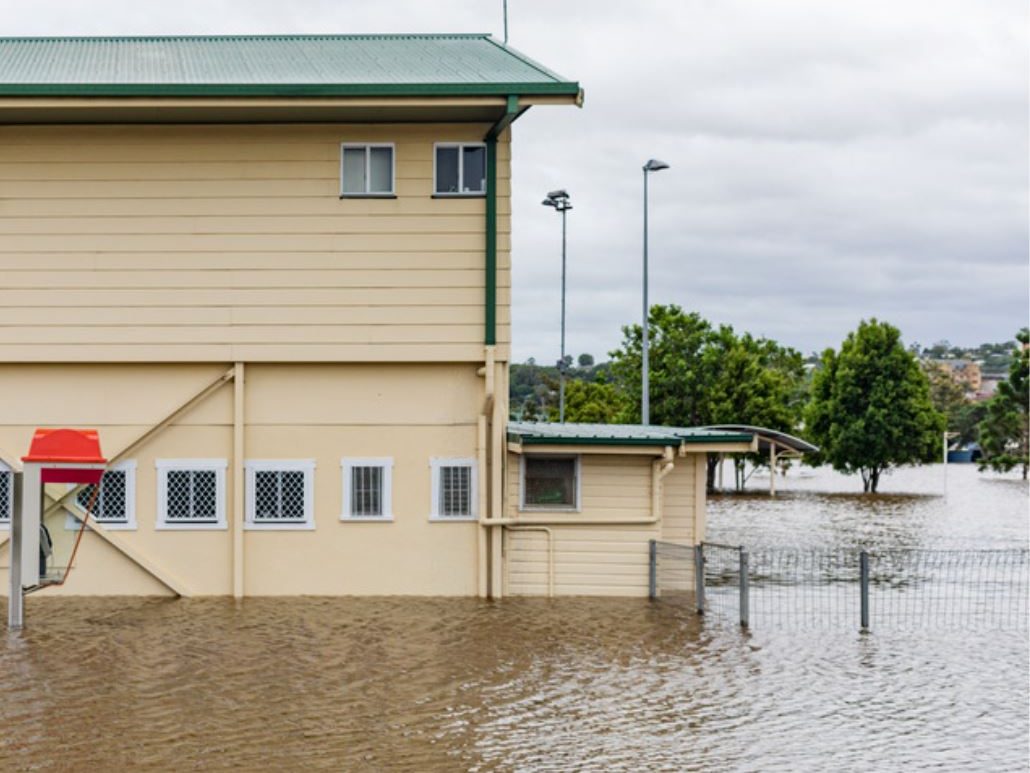
The first Rebuilding Futures program grant round opens today and closes on 15 September, with $200,000 available through grants of up to $15,000 each for local community groups and not-for-profits in areas impacted by flooding in March 2021. Successful grants will be announced in November 2021.
Natalie Egleton, CEO of FRRR said the Foundation is delighted to be partnering with the Suncorp Group on the dedicated funding initiative.
“From our many years working alongside communities as they recover from natural disasters, we have learnt that recovery is a marathon and local community groups and not-for-profits need funding for diverse recovery initiatives, as their needs evolve over time,” Ms Egleton said.
Suncorp Group CEO Steve Johnston launched the first round of grants to help NSW and Queensland communities impacted by flooding in March 2021.
“These communities are dealing not only with COVID-19, but the significant impacts of flooding,” Mr Johnston said.
“I’ve seen first-hand the devastation and emotional toll of natural disasters, which is why we are supporting affected communities to not just build back but to make themselves more resilient than before.
“As an insurer and bank our job is to help our customers to physically and financially rebuild, but we know the full recovery process continues for years after people are back in their homes. Through our long-term relationships with customers across Australia we see the importance of supporting wellbeing and the lasting value of a community’s spirit.
“Communities are best placed to steer their own future which is why these grants empower locals to come together to identify and design local solutions.”
FRRR facilitates funding and capacity building at the local level. It has the relationships and know-how to distribute grants to fund community-led solutions that build resilience and long-term viability of remote, rural, and regional communities across Australia.
“This program, with a focus on the medium to long-term needs and building back better, will mean that when there are significant disasters, the support will be available for local groups to address issues that are important to recovery, to rebuilding the sense of place that is often so badly damaged through events like the floods we saw in NSW earlier this year,” Ms Egleton said.
Grantseeker Workshop
To support community groups and not-for-profit organisations in the eligible remote, rural, and regional communities impacted by the Storm and Flood events of March 2021 to develop their grant applications FRRR will hold a free online grantseeker workshop. The interactive session will provide key program information and helpful tips on how to apply for a grant.
The workshop will take place on Wednesday, 25 August, 1:00pm to 2:30pm AEST.
Attendance is free, but people are asked to register at: https://events.humanitix.com/suncorp-rebuilding-futures-grantseeker-workshop.
For more information contact Danielle Griffin or Fiona Bradshaw at info@frrr.org.au or on 1800 170 020.
More information on the Suncorp Rebuilding Futures grant program is available here.
Support needed now more than ever for communities hit by multiple disasters
Port Macquarie, on the mid-north coast of New South Wales, is just one of many towns reeling from the effects of cumulative disasters. In their case, it began in July 2019 with devastating bushfires that affected many communities across the region. The fires burned until January 2020. Homes, livelihoods and, sadly, lives were lost.
Then in March 2020, COVID-19 hit, decimating visitor numbers and the vital income they bring with them, and restrictions hampered bushfire recovery activities. These cumulative impacts meant many retailers, cafes, pubs, restaurants, tourism and accommodation providers were forced to let staff go or, for some, to close.
In March 2021 – with COVID-19 and bushfire recovery still ongoing – the region was inundated by a one in 100 year flood. Thousands of people were evacuated, and five months later, many have still not been able to return to their homes. Today, pockets of the community are still without electricity.
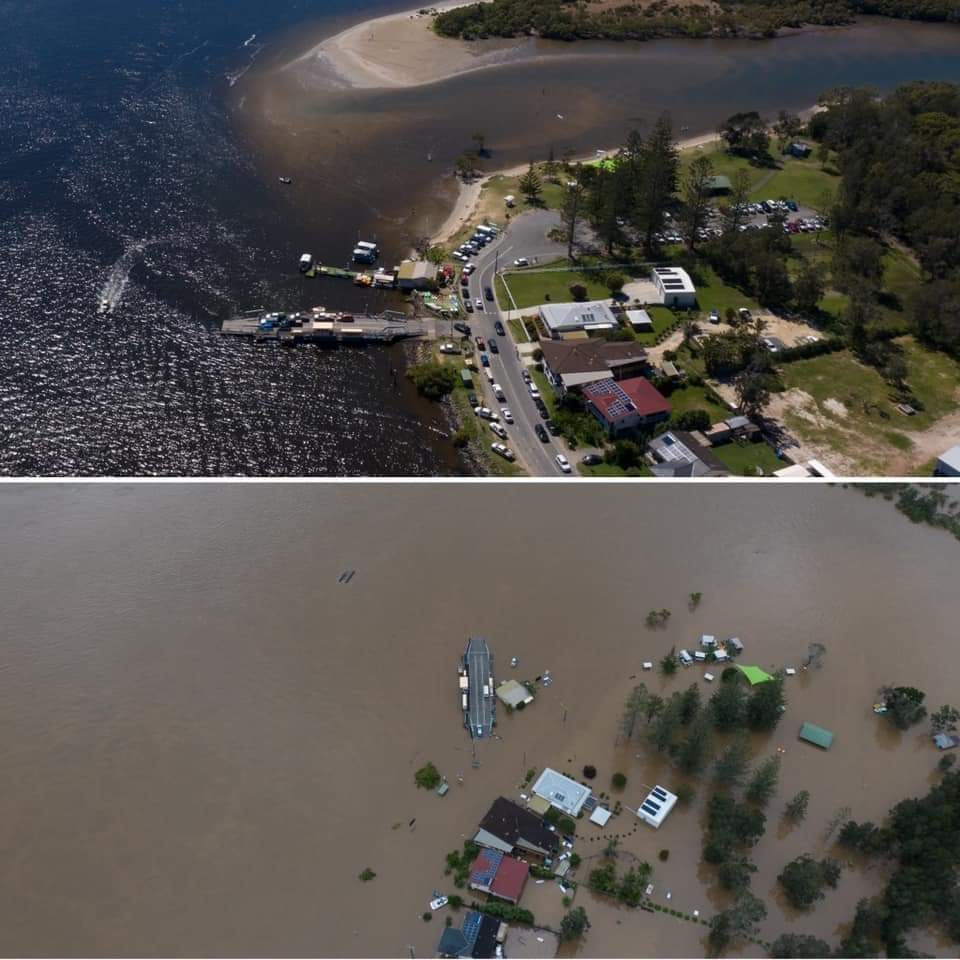
Fewer resources, but more to do
The struggle for small organisations trying to support their community is very real, even in normal times. So, when events like the bushfires, floods and COVID-19 place greater demands on their services, their capacity is challenged. But they fight on!
Make a Difference Port Macquarie (MAD PMQ) is a local support agency helping their community to respond to these events. Over the last year, they’ve had to work through how to do more, with fewer people. When COVID-19 hit, MAD lost their volunteer base almost overnight because most of their volunteers are elderly or retired and are very vulnerable. The pandemic also had a huge impact on the organisation’s fundraising. Like many small community organisations, MAD PMQ relies heavily on events to raise the funds required to deliver their services.
Volunteer Erin Denham said they generally run four or five fundraising events a year but were only able to run one in the last year, and that’s had a massive impact on revenue. MAD PMQ was supported by an FRRR grant that funded the stage for that event and the fit out of their mobile coffee van.
“When we got the FRRR grant, it took so much pressure off us as a charity – we hadn’t been able to run a fundraising event in nine months, and we couldn’t see a way out of COVID-19. The grant allowed us to continue our plan for our projects and support our community.”
As successive disasters have hit the community, MAD PMQ has adapted and expanded its role.
“Our focus has shifted dramatically since our inception,” Erin said. “It was originally homelessness. Now we’ve moved to supporting a wider range of disadvantaged people, so our work shifts and adapts based on the needs of the community and what’s happening around us, like fires or floods. The homeless population is transient, but there are just as many people in the community who need our help that go beyond that demographic.”
When the floods hit in March, their greatest priority was helping to address the immediate needs of those affected by the floods, particularly getting people back in their own homes by supplying white goods such as fridges, washing machines and ovens.
“It’s been a massive effort,” Erin explained. “We’ve raised approximately $50,000 so far, which we’ve since redistributed in white goods and other requests. But it feels like the funding is starting to dry up, and the demand is greater now than it was immediately after the floods.”
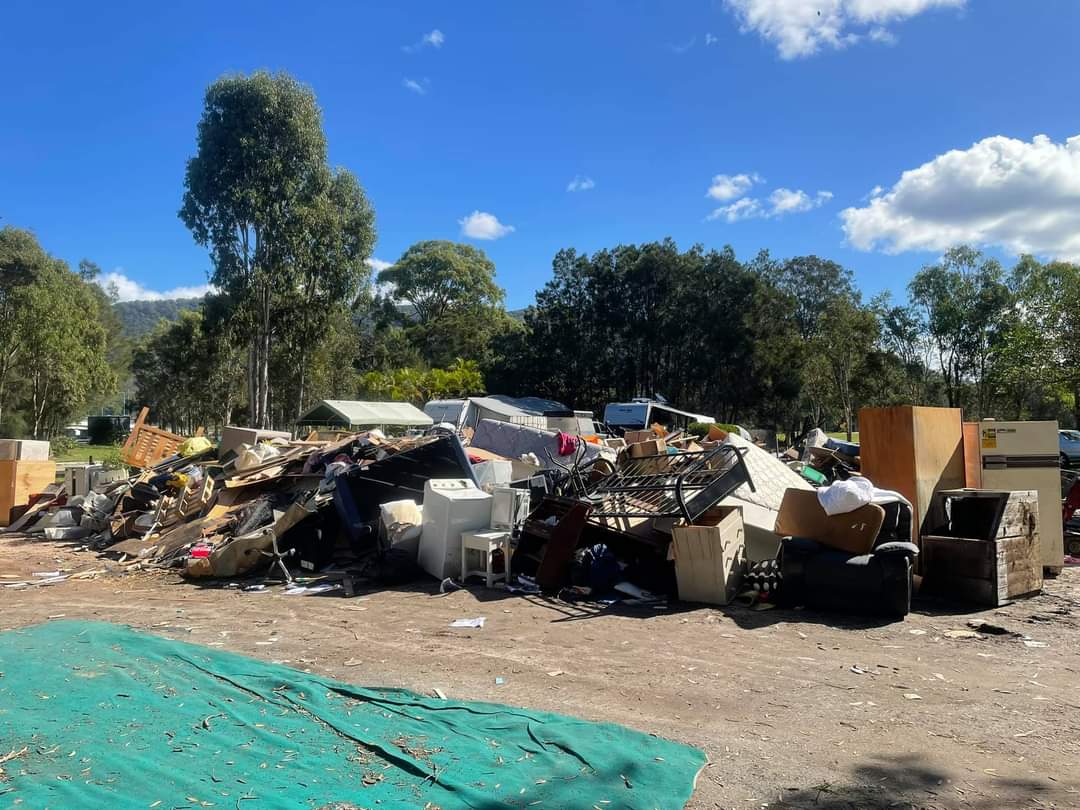
Emerging impacts
In fact, demand for MAD’s services is the highest they’ve ever seen, and Erin says she thinks it will continue to increase as the full impact of the “triple-whammy” of disasters takes effect.
Erin said that while there was lots of help immediately following the fires and floods from external organisations and agencies, the responsibility is now falling on the small organisations within the community to pick up the load and continue to meet the ongoing needs of a community impacted by natural disasters.
“Most of the people provided with emergency accommodation until the end of June or early July are starting to have to move on, and demand for assistance to MAD PMQ is increasing.
“Everyone’s gone back to business as usual, you can’t tell by driving through town that anything happened,” Erin said.
“Just last week we came across a gentleman who is still living in his flood-affected caravan, with no power or running water. His caravan was written off, but he’s got nowhere else to go. We provided him with a generator, so he at least has some power.
“And I’m aware of a 65 year old man who was living in a tent in his back yard, while his wife was in emergency accommodation. They were separated for months after the floods happened. The housing crisis and gentrification are big problems, with people relocating from Sydney, and many people being pushed out of the rental market. And while they might be eligible for grants, often they can’t meet all of the requirements that’s needed and therefore they miss out on funding.”
Erin said that support through FRRR, such as the new Suncorp Rebuilding Futures program, allows community organisations to be responsive in the aftermath of the situation. By offering funding support for charities like MAD, the program will allow them to help residents get back into their homes faster.
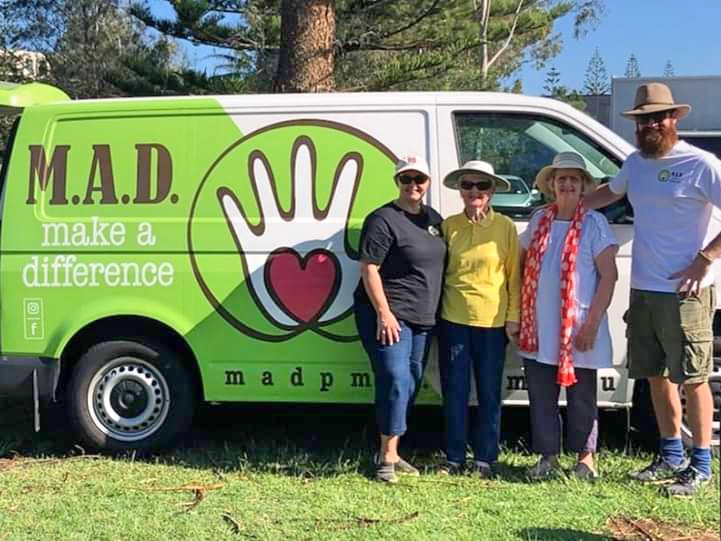
Images: Alex McNaught
More than 6,800 Back to School vouchers distributed
More than 6,800 students and families in places recovering from the 2019/20 bushfires will head Back to School in semester 2 with a little extra support, thanks to the generosity of donors from across Australia and overseas.
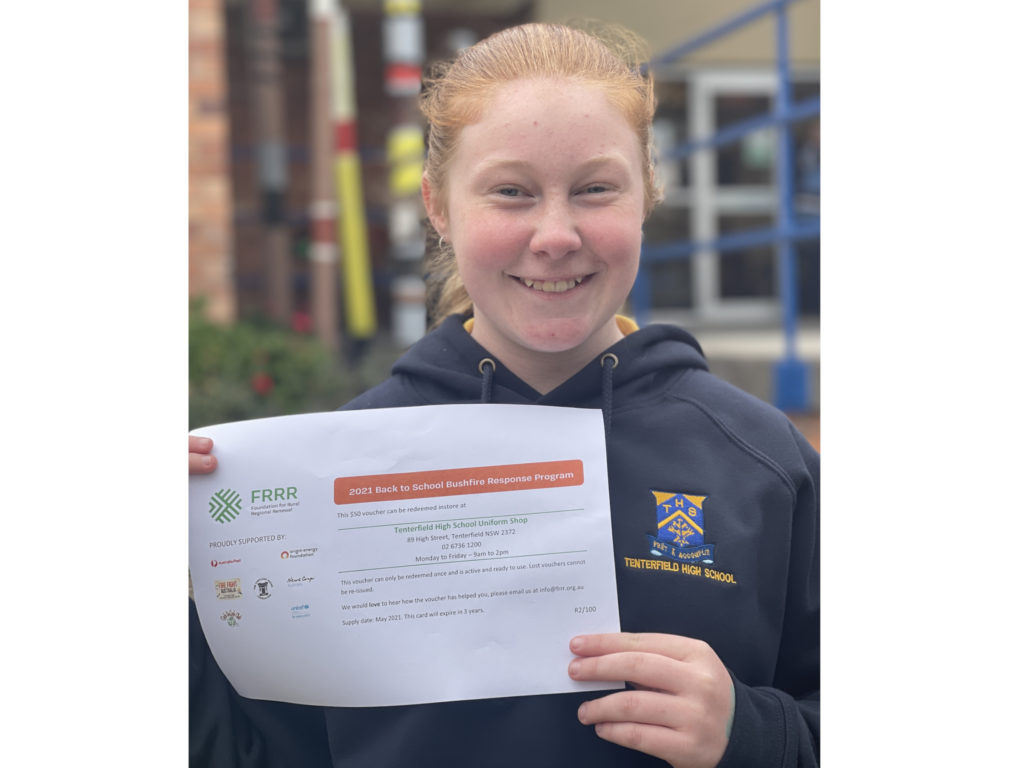
Funded through a special Bushfire Response round of the Back to School (BTS) program, FRRR has partnered with local community groups and Community Foundations in impacted regions to distribute 6,814 $50 gift vouchers to families in need.
Students can redeem the vouchers for school essentials such as winter uniforms, school bags, shoes or stationery. To date, BTS vouchers valued at more than $822,000 have been distributed to families in fire-affected communities since June 2020.
Natalie Egleton, CEO of FRRR, said that for these students and their families, the vouchers provide a little extra help as they continue to navigate the recovery journey, which has certainly been complicated by the pandemic.
“Last year many of these families were home schooling throughout the colder months. So, with most back at school, some are only now realising there are items that still need replacing following the bushfires.
“Fifty dollars may not seem much, but for these families it can have a big impact, helping to cover the cost of a couple of school jumpers or a winter uniform, new books to start the term or even a sleeping bag that a child can use for school camp.
“We’re grateful to our Community Foundation partners and other groups that are working on the ground in the impacted regions. Their discreet distribution of the vouchers to those in need means families can receive support without having to ask for it,” Ms Egleton said.
Tenterfield Lions Club is one of the organisations helping to distribute the vouchers to students in their region. Club President, Lisa Dalton, said that the vouchers will help parents with the costs of winter school essentials and will also benefit the Shire when the vouchers are redeemed locally.
“We’ve been through the wringer over the last couple of years, and I hope this is just a small way of letting the wider community know we are all in this together,” Ms Dalton said.
The BTS program distributes vouchers to students and families across Australia, including those in regions not impacted by the 2019/20 bushfires. In total, 64 Community Foundations and locally-based community groups have helped FRRR to distribute $1,075,400 in vouchers to through the BTS program this year.
BTS vouchers are funded by FRRR and its donor partners, which include News Corp, Australia Post, Fire Fight Australia concert, Counter Point Community Services (Cycle Recycle), Portland House Foundation, UNICEF Australia, J & M Nolan Family Trust, Bertalli Family Foundation, June Canavan Foundation, and Origin Energy Foundation, as well as individual donors.
Vouchers were awarded to support the following bushfire-affected Local Government Areas:
| Towong (VIC) East Gippsland (VIC) Wellington (VIC) Greater Hume Shire (NSW) Snowy Valleys (NSW) Eurobodalla (NSW) Mid-Coast (NSW) Bega Valley (NSW) | Tenterfield (NSW) Ballina (NSW) Clarence Valley (NSW) Lismore (NSW) Richmond Valley (NSW) Kyogle (NSW) Kangaroo Island (SA) Yorke Peninsula (SA) |
Funding awarded for 33 recovery-focused projects
Through its Strengthening Rural Communities (SRC) program, FRRR has awarded $637,908 in grants for 33 initiatives prioritised by local communities to support their recovery from the 2019/2020 summer bushfires.
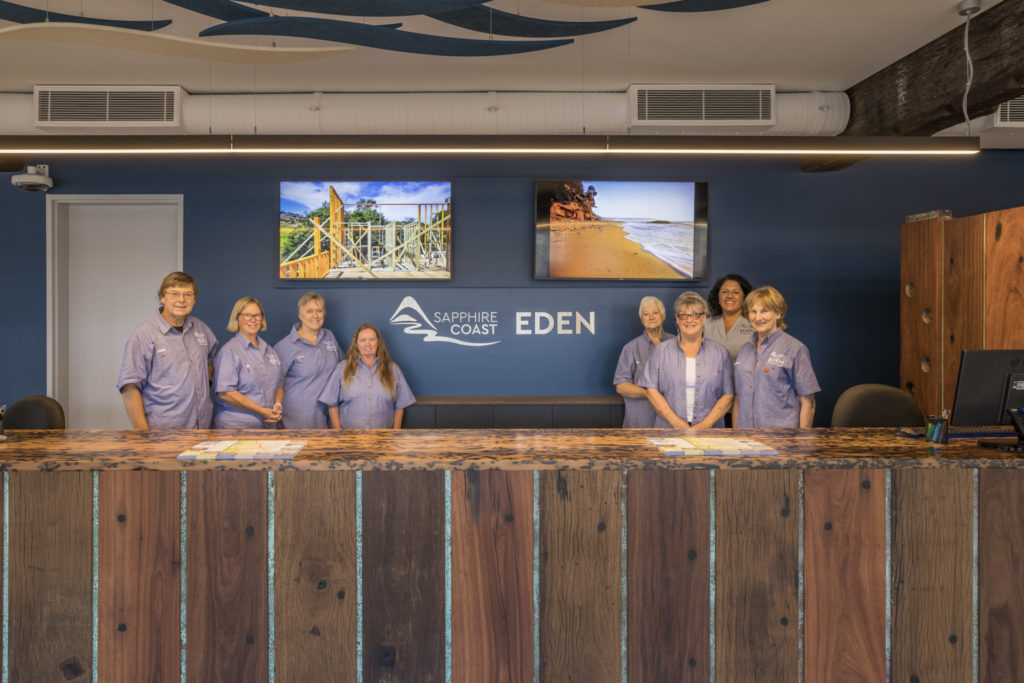
The SRC program’s Bushfire Recovery stream is collaboratively funded and supports projects that are led by local people and address local recovery needs. The grants awarded will help promote the healing and renewal of these impacted places.
In this round of Bushfire Recovery funding, grants range from $2,500 to encourage locals to participate in recovery activities at the Maclean Spring Festival in NSW, through to $25,000 for the installation of local fauna sculptures that will increase connection to place and enhance public spaces in Marlow, Victoria.
Natalie Egleton, CEO of FRRR, said that the Foundation continues to support communities recovering from disaster, because it knows recovery is a long-term process that is unique for each affected place.
“Many impacted communities have faced multiple disasters beyond the bushfires, including COVID-19 and floods. The pandemic has made recovery all the more challenging for these regions. For community organisations, it’s hampered their capacity to deliver services that they would otherwise be providing to help their communities heal.
“Many groups have worked hard to support locals in safe and responsive ways but understandably, local volunteers are pretty worn out. In response, we have awarded a number of grants for projects that will relieve volunteer-fatigue and alleviate the pressures that many volunteer-led groups are dealing with.
“Recovery is a complex process that really hinges on local people coming together to support one another, to share and heal. We continue to see strong demand for projects that provide a safe space for communities to gather and connect by investing in local community assets and infrastructure.
“We are also seeing attention focused on more vulnerable members of the community, with local organisations using grants for projects that address the recovery needs of age-based groups, gendered groups and Indigenous groups,” Ms Egleton said.
Some of the 33 Bushfire Recovery projects awarded include:
- Australian Outward Bound Development Fund Pty Limited, Tharwa ACT – Rebuilding from the Heat – $22,367 – Improve preparedness for future disasters at Australian Outward Bound’s Tharwa site through the renewal of aged firefighting and maintenance equipment.
- Lansdowne Hall Reserve Trust, Lansdowne NSW – Ride on Mower for Lansdowne Community Hall – $5,107 – Reduce volunteer fatigue and increase preparedness for future fires through the purchase of a ride on mower for the Lansdowne Hall.
- Rathdowney and District Memorial Grounds Association Incorporated, QLD – Natural Disaster Preparedness – Electrical masterplan for emergency response facilities – $13,420 – Enhance community activities and support community preparedness for future emergency evacuations by developing an electricity supply masterplan for the Memorial Grounds.
- Kingscote Mens Shed Inc, Kingscote SA – Connection Through Activity for Men Living on Kangaroo Island – $3,683 – Increase opportunities to support local connectedness and social recovery, through restoration of a local historic Wharf Trolley.
- Bemm River Progress and Improvement Association Inc, VIC – Bemm River Men’s Shed Upgrade – Toilet and Kitchen – $16,422 – Boost community recovery and connection through upgrades to the Men’s Shed toilet and kitchen facilities.
In total, this round of SRC awarded $1,589,612 in grants across three streams – Small & Vital, Larger Leverage and Bushfire Recovery. The 112 projects funded will help build the resilience and long-term vitality of smaller remote, rural and regional communities across Australia.
A full list of SRC grant recipients across all three streams of funding is available here.
The SRC program is collaboratively supported by a number of generous donors, which are also listed here.
The current round is accepting applications until 24 August 2021, with funds to be awarded in December 2021.
27 locally-led projects funded
Rural communities across Australia are sharing in $1,060,404 in grants for 27 projects that will help them access the resources they need to tackle the ongoing effects of the Big Dry thanks to FRRR’s award-winning grants program[1], Tackling Tough Times Together (TTTT).
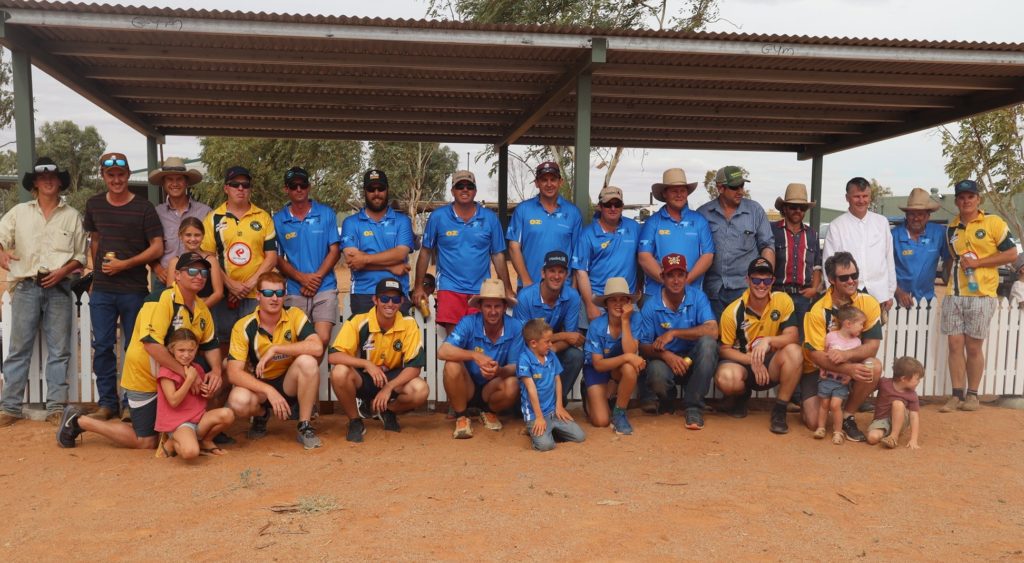
While water storage levels in the northern Murray-Darling Basin and northern Australia have improved, parts of south east Queensland and southern Western Australia still face serious or severe rainfall deficiencies[2]. Although other areas and states have had some rain, recovery from drought requires at least 18 months of average to above average rainfall. So much of the country continues to need support to tackle the impacts of the prolonged dry.
The 27 funded projects will help rural communities across Australia, from Charleville in Queensland, Moulamein in New South Wales, Keith in South Australia, to Manjimup in Western Australia, strengthen social connections, boost economic recovery, and build community and organisational capacity and disaster resilience.
Nina O’Brien, FRRR’s Disaster Resilience and Recovery Lead, said that on top of the effects of the drought, the ongoing impacts of the pandemic has seen volunteer fatigue emerge as a key priority in many places.
“For those areas still in drought, volunteers and local groups have had to find ways to sustain and engage the community,” Ms O’Brien explained.
“Maintaining this optimism and drive is no small feat, and we are pleased to be able to support the places and the people that are working to make their community thrive amidst the complexities of drought and the pandemic.
This includes groups like the Bundaleer Forest Community Areas Association in Jamestown, South Australia, who will be able to support their volunteers and boost economic sustainability by upgrading infrastructure and purchasing new equipment. The funding will provide equipment and storage areas needed to maintain the Maple and Pine event centre. The Bundaleer Forest project will provide strong, genuine and ongoing economic benefit, regardless of seasonal conditions, making Jamestown a more attractive place to live, work and play.
In New South Wales, Moulamein Community Development Incorporated has developed an inspiring project that will encourage tourism activity to the area through the restoration of the Werai Horse Stables and Moolpa Blacksmith shop in the Moulamein Heritage Village. The primarily volunteer-run organisation has been awarded a $149,930 grant for their initiative, which will boost the region’s economic recovery and build community wellbeing.
Some of the 27 projects awarded this round include:
- Monaro Farming Systems CMC Incorporated, NSW – Building Resilient Relationships for Farmers – $29,610 – Help locals stay informed and connected through the delivery of workshops in the Monaro region.
- Charleville & District Cultural Association Inc, QLD – Charleville Creative Lane 2021 – $20,000 – Encourage more local involvement in the community by delivering up to 30 creative arts workshops in Charleville.
- Back to the Bush Festival Incorporated, QLD – Miles Back to the Bush Festival – It is the people that make it – $23,452 – Support opportunities for social and educational participation and address disadvantage caused by the drought, for children and young people of Miles, QLD through the delivery of the Back to the Bush Festival in September 2021.
- Cadell Community and Tourist Association, SA – Cadell Op-Shop Amenities Block – $11,000 – Support volunteers at the community owned and operated Cadell Op-Shop by installing running water and an onsite toilet.
- Shire of Manjimup, WA – Youth Engage and Empower Project – $60,000 – Support opportunities for social and educational participation through employment of a Project Facilitator to build local youth resilience and establish a youth council for the Shire of Manjimup.
Applications for the TTTT program are always open and groups in drought-affected areas are encouraged to apply for funding to help their community come together to tackle the drought. Grants are available for a broad range of grassroots, community-led initiatives that directly and clearly benefit local communities.
The cut-off dates for the next round of TTTT are:
- 24 August 2021. (Note: Stage One for the $150,000 grant tier must be received by 12 August). Outcomes will be advised late November 2021.
Tackling Tough Times Together is possible thanks to the collaborative support of several donors, including the Australian Government which committed $15M to be distributed over three years. Generous contributions have also been made by Pratt Foundation, Stockland CARE Foundation, Paul Ramsay Foundation, The Snow Foundation, Tim Fairfax Family Foundation, Henroth Group and private donors from across the nation. To join these donors, and support grants like this through FRRR, you can make a tax-deductible donation here.
More information on the Tackling Tough Times Together grant program is available here.
The full list of grant recipients and their projects are below.
| Organisation | Project | Location | Grant | |||
|---|---|---|---|---|---|---|
| NEW SOUTH WALES | ||||||
| Up to $150,000 | ||||||
| Moulamein Community Development Incorporated | Moulamein Heritage Village Stage Two Enhance economic recovery and renewal through the restoration of the Werai Horse Stables and Moolpa Blacksmith shop in the Moulamein Heritage Village. | Moulamein | $149,930 | |||
| Up to $60,000 | ||||||
| Monaro Farming Systems CMC Incorporated | Building Resilient Relationships for Farmers Help locals stay informed and connected through the delivery of Building Resilient Relationships for Farmers workshops in the Monaro region. | Cooma | $29,610 | |||
| Up to $20,000 | ||||||
| Dunoon Men's Shed Incorporated | Modelling the Renewable Energy Lifestyle Support climate resilience and sustainability of the Dunoon Men’s Shed by installing solar power with a battery back-up system. | Dunoon | $20,000 | |||
| Crescent Head Community Hall Committee | Interior Refurbishment of Crescent Head Community Hall Encourage better use of the community hall by repairing and restoring the interior to make the community space more comfortable and welcoming. | Crescent Head | $14,133 | |||
| Macleay Choristers Incorporated | Macleay Choristers Piano Grant Enhance cultural activities that increase local connectedness, through purchase of a piano for local choir and wider community. | Kempsey | $10,790 | |||
| QUEENSLAND | ||||||
| Up to $60,000 | ||||||
| Texas P-10 State School Parents and Citizens Association | Texas State School Middle School Playground Facility Encourage children’s learning and development through play by installing play equipment for grades 3-6. | Texas | $60,000 | |||
| South Burnett Mountain Bike Club Incorporated | Gordonbrook Dam Mountain Bike Park Support eco-tourism opportunities to strengthen the local economy through construction of a mountain bike track at Kingaroy. | Kingaroy | $49,654 | |||
| Friends of the GalleryBooringa Action Group Incorporated | Booringa Fire and Water Festival Boost and strengthen the local economy with the Fire and Water Festival. | Mitchell | $41,653 | |||
| Swan Creek School of Arts Committee Incorporation | Swan Creek Hall Floor Replacement Increase safety and amenity at local meeting space, through upgrading the flooring at Swan Creek Hall. | Swan Creek | $41,501 | |||
| Thallon Progress Association Incorporated | Sculptures in the Scrub - Thallon Art History Trail Boost and strengthen the local economy and increase connection to place through development of a sculpture trail in Thallon. | Thallon | $35,876 | |||
| Roughlie Community Centre Incorporated | Shaded Outdoor Area Increase local capacity to support community activities and connectedness, through construction of an outdoor meeting area at Roughlie Community Centre. | Roma | $34,000 | |||
| Amiens History Association Incorporated | Multi-function solar shed and access pathways Boost and strengthen the organisation’s capacity and sustainability by constructing a multi-purpose shed with solar panels at the Aththe Amiens Legacy Centre. | Amiens | $32,659 | |||
| Back to the Bush Festival Incorporated | Miles Back to the Bush Festival – It’s the people that make it Support opportunities for social and educational participation and address disadvantage caused by the drought, for children and young people of Miles, QLD through the delivery of the Back to the Bush Festival in September 2021. | Miles | $23,452 | |||
| Up to $20,000 | ||||||
| Charleville & District Cultural Association Incorporated | Charleville Creative Lane 2021 Encourage more local involvement in the community by delivering up to 30 creative arts workshops in Charleville. | Charleville | $20,000 | |||
| Farm 2 Fork Collective Incorporated | Future Proofing the Farm 2 Fork Collective Boost and strengthen organisation and volunteer capacity with professional development to ensure growth and sustainability. | Kingaroy | $19,475 | |||
| Killarney Bowls Club Incorporated | Purchase New Kitchen Appliances Improve volunteer vitality and organisational resilience by replacing appliances at the Killarney Bowls Club. | Killarney | $16,100 | |||
| C&K Middlemount Community Childcare Centre The Creche and Kindergarten Association Limited | C&K Middlemount’s Solar-wise Childcare Project Support climate resilience and the sustainability of the community childcare centre through the installation of solar panels. | Middlemount | $9,626 | |||
| SOUTH AUSTRALIA | ||||||
| Up to $60,000 | ||||||
| Milang & District Historical Society Incorporated | The Port Milang Museum Upgrade Increase volunteer safety and comfort at Milang Museum and Men's Shed, through building repairs. | Milang | $57,090 | |||
| Bundaleer Forest Community Areas Association Incorporated | Storage and Equipment for Efficient and Sustainable Volunteer Management of Newly Opened Event Centre Maple & Pine, Bundaleer, SA Reduce volunteer fatigue and boost the sustainability of the Maple and Pine community centre through purchase of equipment. | Jamestown | $56,210 | |||
| Keith Golf Club Incorporated | Keith Golf Club Renovations - Stage 2 Improve the comfort, amenity and function of the local community meeting area, through upgrade to Keith Golf Club building. | Keith | $52,883 | |||
| Bute 2000 Onwards Committee Barunga West Council | Bute's "Beaut" Silo Art Project Boost and strengthen the local economy through silo art at Bute. | Bute | $49,915 | |||
| Riverland Connect Association | Enhancement of Paringa Silo Art Enhance the silo art attraction at Paringa, through installation of lighting and sheds for shelter. | Paringa | $36,645 | |||
| Up to $20,000 | ||||||
| Purnong District Hall Incorporated | Underpinning Grow community resilience and secure the future of the Purnong District Hall for generations with infrastructure works. | Purnong | $18,200 | |||
| Guyra Garden Club | Guyra Spring Flower Festival 2021 - Memorial Avenue & Mandala GardenBoost and strengthen the local economy with the Guyra Spring Flower Festival 2021 including a Memorial Avenue and Mandala Garden to honour service people. | Guyra | $50,000 | |||
| Cadell Community and Tourist Association | Cadell Op-Shop Amenities Block Support volunteers at the community owned and operated Cadell Op-Shop by installing running water and an onsite toilet. | Cadell | $11,000 | |||
| WESTERN AUSTRALIA | ||||||
| Up to $60,000 | ||||||
| Shire of Manjimup | Youth Engage and Empower Project Support opportunities for social and educational participation through employment of a Project Facilitator to build local youth resilience and establish a youth council for the Shire of Manjimup. | Manjimup | $60,000 | |||
| The Moore Catchment Council (Inc) | Building a BIG Carnaby's Black Cockatoo Sculpture in Moora Enhance local tourism and diversify economic opportunities at Moora, through construction of large sculpture featuring the Carnaby Black Cockatoo. | Moora | $60,000 | |||
[1] 2020 Australian Philanthropy Awards – Best Grant Program
[2] Australian Government Bureau of Meteorology. Drought Rainfall deficiencies and water availability. 10 May 2020. Retrieved from https://bit.ly/2I1PSqA.
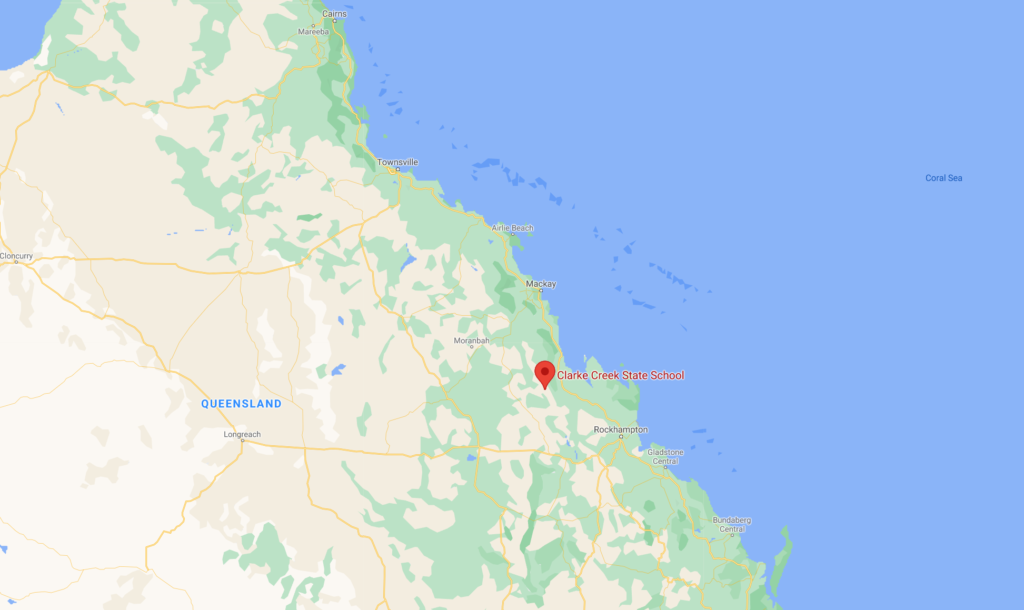
In the remote locality of Clarke Creek in Queensland’s Isaac Region, a community of 320 people have been doing it tough in recent years. In March 2017 Tropical Cyclone Debbie and flash flooding devastated the area, and then came the drought.
People from Clarke Creek mostly own or work on cattle stations, many run by extended and intergenerational family groups. School-aged children in the area were exposed to many impacts of Cyclone Debbie – from damage to community and family infrastructure, livestock and pet animal losses, to financial strain putting pressure on their families.
A problem-solving school
The saving grace of this community is the Clarke Creek State School (CCSS), which, in the absence of a township, serves as the community hub. It caters to the needs of 17 students from Kinder to Year 6, extends support to siblings, parents and extended families of those students, and provides a meeting place for all groups in the area, including the P&C Association.
The Clarke Creek P&C Association knew it was critical to support children through all this, and that school can help facilitate healing by providing the sense of normality that’s needed after a disaster. Since residents of Clarke Creek had to travel up to 230kms to access health and professional services, the P&C Association knew that, for help to be constructive, it would need to be brought into Clarke Creek.
The school had previously gained the services of a chaplain directly though the National Schools Chaplaincy Program, however the school could only afford one visit per fortnight without outside funding. By late 2018, it was clear that there was a need for ongoing disaster support for families. With so many pressures affecting the ability to fundraise locally in the tiny community, the P&C Association applied to FRRR’s In a Good Place program. A grant of $10,000 funded by CCI Giving essentially doubled the chaplain’s visits to weekly from July 2019 until March 2020, when the Department of Education funding applications opened.
Chaplaincy support proves vital
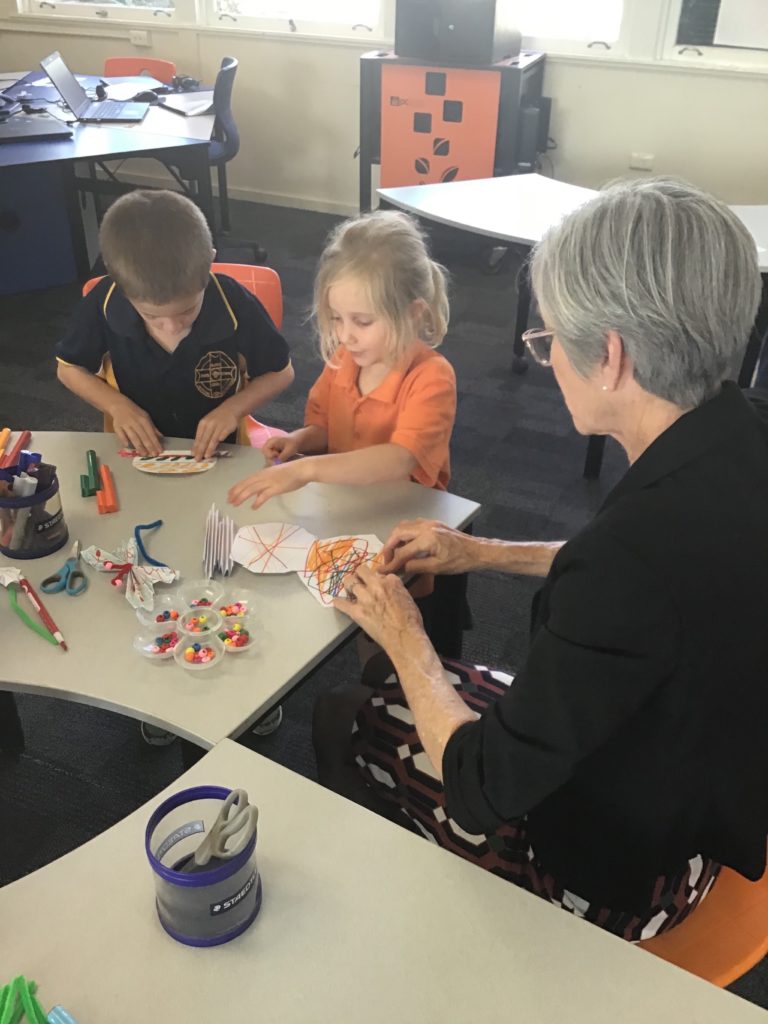
In small schools, the school chaplain is often the welfare provider, and plays a key part of the school support team.
The chaplaincy support at CCSS started shortly after the school and community were devastated by cyclone Debbie, and proved to be highly valuable to students, staff and the broader community, in their ongoing recovery and general mental health and wellbeing. The chaplain attends the school one day each week, working with the children in groups and one on one sessions. She provides emotional support and fosters leadership and kindness in the classroom, playground, and at school events.
“Chappy’, as she is fondly nicknamed, has been imparting those crucial life skills to the children and helping them to deal with the many challenges unique to living in a remote community in an isolated context.
It was a crucial time to bring in extra support, and the P&C Association don’t make light of the importance of Chappy’s role. Throughout COVID-19, the chaplain helped children deal with changes to their learning and became a central figure of stability for parents and the wider community.
The CCSS Principal notes how important the chaplain is in helping students transition through their education.
“I think the older students love the way she makes sure they all know that they have a voice and that someone cares enough to make the time to listen. She helped prepare older students for boarding school, and taught younger ones to be engaged in learning and practising kindness.”
The chaplain attends school and community events, and works with other schools in the cluster, thus creating support networks in the broader communities and creating an inclusive atmosphere and strengthened sense of community. But it’s the flow-on effects from the children’s gains that have the greatest power, as described in the final report:
“Our greatest achievement has been just stabilising our community. Oddly, this was really achieved through the children coming home from school with this positive energy and outlook from their time with Chappy, rather than working direct with parents and community. When the parents knew the kids would be ok and had someone strong to lean on, it was like a weight lifted and the school became the place of ‘normalcy and support’. Things picked up from there.
“In a small school and community, we have to stick together. Chappy has fostered this sense of belonging and caring in our children and it emanates from there.”
FRRR acknowledges the devastating effects that Cyclone Seroja has had on a number of remote communities across Western Australia.
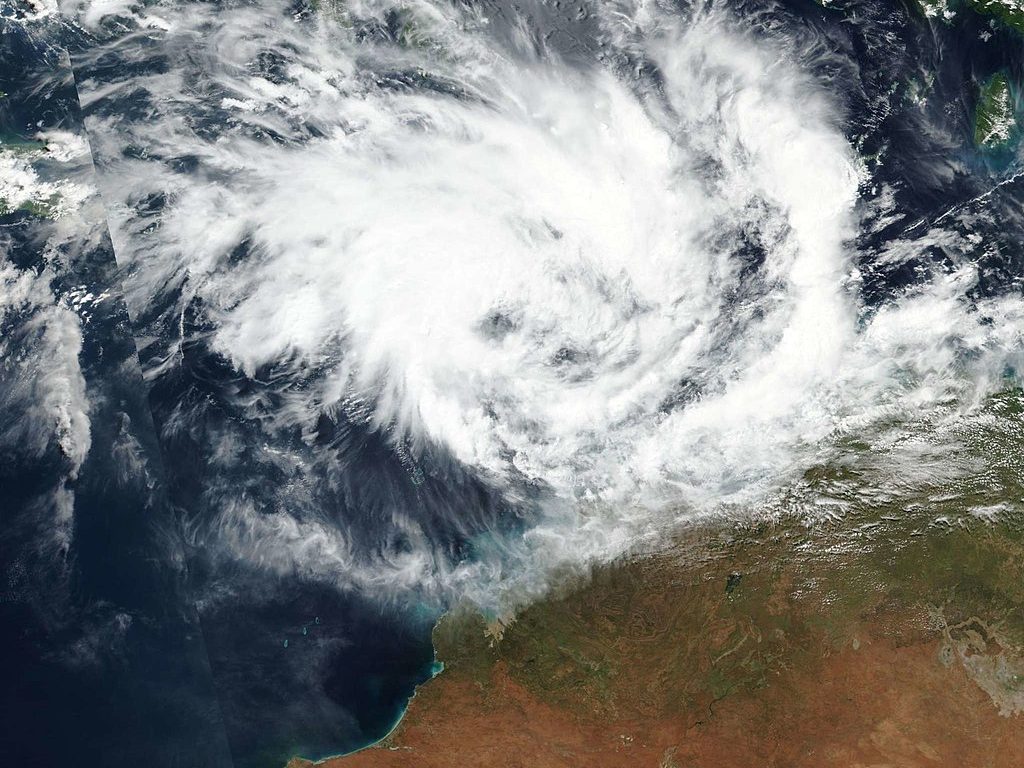
Natalie Egleton, FRRR’s CEO, said that the Foundation knows recovery for these impacted communities has only just begun, with reconnection of power an immediate priority, and the rebuilding damaged houses, farms and public assets to occur in the months and years ahead.
“We also anticipate that the activities of local community groups, which are so vital to the ongoing fabric of Western Australia’s remote, rural and regional communities, will be significantly impacted. But we also know these groups will play a vital role in supporting their community through the recovery journey.
“FRRR encourages any donors interested in assisting these affected communities to donate to charities registered with the ACNC, and to consider supporting the needs of communities through the medium-long term recovery journey, in addition to their more immediate needs,” Ms Egleton said.
FRRR has a long history of assisting communities to recover from disasters. We have facilitated support to communities recovering from the recent NSW floods; the 2019-20 Black Summer bushfires; 2019 North Queensland floods; Cyclones Debbie (2017), Oswald (2013), Yasi (2011) and Larry (2006); the 2013 Blue Mountains bushfires; the Victorian Black Saturday bushfires of 2009; and ongoing droughts; and to those places preparing for future disaster events.
“More frequent and intense climate disasters means that Australia needs to be proactive in how we fund communities to assist with their preparedness activities, and to have funds available to support them through the medium to long term aftermath of a disaster.” Ms Egleton explained.
Any funds donated to FRRR to support WA communities affected by Cyclone Seroja will be allocated through the following two key mechanisms:
- FRRR’s Strengthening Rural Communities program, which is open all year round, and assessed quarterly. Grants of up to $10,000 will be distributed; OR
- FRRR’s Disaster Resilience and Recovery Fund (DRRF). The DRRF was initiated in August 2019, in response to an increasing frequency of disasters. FRRR wanted to ensure it had a corpus of funds invested, so that it can provide some support to disaster impacted communities whether they’re large or small, in the public eye for a long time or swallowed by other events, or are well-supported philanthropically, or not. Donations made to FRRR’s DRRF are pooled and invested, making it a gift that keeps giving, with earnings drawn off every year to be distributed to communities impacted by disaster through grants in programs such as Strengthening Rural Communities. The DRRF currently holds over $4M, which is invested. FRRR will provide support to community groups recovering from the impacts of the cyclone over the coming years, by applying a portion of the earnings from this fund.
FRRR welcomes donations to either of these mechanisms. All donations over $2 are tax deductible in Australia.
Beyond FRRR, the Foundation encourages everyone to consider the impact that this cyclone has had on many individuals and communities across WA, and consider giving to a DGR-1 endorsed ACNC registered charity, which can support individuals and their communities through the recovery journey.
For more information, contact Sarah Matthee, FRRR’s General Manager, Partnerships and Services.

